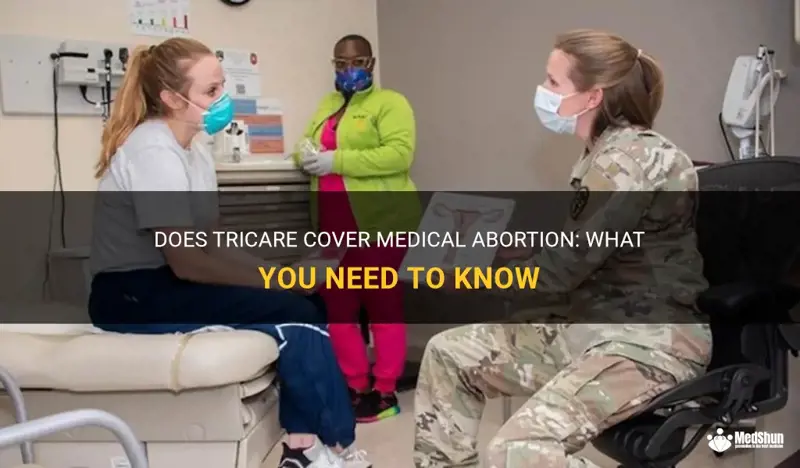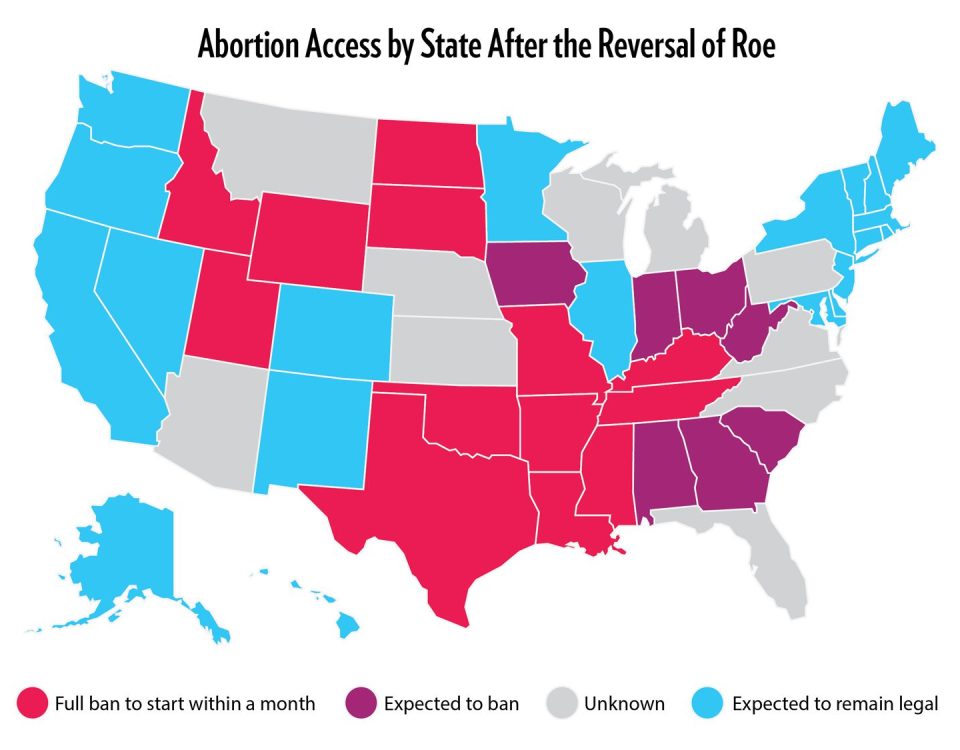
Why Did Republicans Block the IVF Bill?
April 13, 2025
Can You Choose Your Baby’s Gender with IVF?
April 13, 2025Does TRICARE Cover IVF? Your Guide to Fertility Benefits for Military Families
For military families dreaming of starting or growing their family, fertility challenges can feel like an extra hurdle on an already unique journey. If you’re covered by TRICARE—the health insurance program for active-duty service members, retirees, and their families—you might be wondering: Does TRICARE cover in vitro fertilization (IVF)? It’s a big question, and the answer isn’t as simple as a yes or no. Let’s dive into what TRICARE offers, who qualifies, and what you can do if you’re facing gaps in coverage. This guide is packed with practical info, real-world insights, and a few surprises that could make all the difference for your family-building plans.
What Is IVF, and Why Does It Matter to Military Families?
IVF is a fertility treatment where eggs are fertilized with sperm in a lab, and the resulting embryos are placed into the uterus to hopefully grow into a healthy pregnancy. It’s one of the most effective options for people struggling with infertility, which affects about 15% of couples in the U.S. For military families, infertility can hit harder—studies suggest service members face higher rates due to stress, deployments, or exposure to hazards like toxins or blasts.
Imagine you’ve been trying to have a baby for years, but between moves, deployments, and the physical toll of service, it’s just not happening. IVF could be your lifeline, but it’s expensive—often $15,000 or more per cycle. That’s where TRICARE comes in, or at least, where you hope it does. So, what’s the deal?
TRICARE’s Basic Stance on IVF Coverage
Here’s the starting point: TRICARE doesn’t broadly cover IVF for everyone. Unlike some private insurance plans or even the Federal Employee Health Benefits (FEHB) program, which offers IVF to federal employees, TRICARE has strict rules. Right now, IVF is only covered in specific cases tied to serious service-related health issues. If your infertility isn’t linked to an injury or illness from active duty, you’re likely out of luck with standard coverage.
But don’t stop reading yet—there are exceptions, workarounds, and new developments that could change the game. Let’s break it down step by step.
Who Qualifies for IVF Under TRICARE?
TRICARE does cover IVF, but only for a small group of beneficiaries. Here’s who can get it:
- Active-duty service members (male or female) with a serious or severe illness or injury from active duty that caused infertility. Think major trauma, like a blast injury, or a condition like cancer requiring treatments that damage fertility.
- Documentation is key: You’ll need a doctor to confirm the infertility is directly tied to that service-related issue.
- Spouses may qualify too: If the service member’s injury affects their ability to conceive naturally, their spouse might be eligible for IVF using donor eggs or sperm.
For example, if a soldier lost their ability to produce sperm due to a combat injury, TRICARE could cover IVF to help their spouse conceive using donor sperm. It’s narrow, but it’s something.
What’s Covered When You Qualify?
If you meet the criteria, TRICARE steps up with some solid benefits at military treatment facilities (MTFs) or through network providers:
- Up to three completed IVF cycles: This includes egg retrieval, fertilization, and embryo transfer.
- Up to six egg retrieval attempts: If the first few don’t work, you’ve got more chances.
- Medications and lab work: Things like fertility drugs and testing are often included.
- Cryopreservation: Freezing eggs, sperm, or embryos for later use is covered too, which is huge for service members planning ahead.
At MTFs like Walter Reed National Military Medical Center, the cost can drop to around $5,000 per cycle—way less than the civilian average. But here’s the catch: spots are limited, waitlists can stretch months, and not every base has these services.
Why Doesn’t TRICARE Cover IVF for Everyone?
You might be thinking, “Wait, why isn’t this available to all military families?” It’s a fair question. The short answer is policy and priorities. TRICARE is designed to focus on medical necessity tied to service, not elective treatments. Historically, infertility treatments like IVF have been seen as optional, not essential, by the Department of Defense (DoD).
But there’s more to it. Military families face unique challenges—frequent moves, long separations, and occupational hazards—that can delay family planning or worsen fertility. A 2021 Blue Star Families survey found 42% of active-duty families said military life created barriers to having kids. Yet, TRICARE’s rules haven’t caught up to this reality for most beneficiaries.
A Comparison to Civilian Plans
To put it in perspective, about 47% of large U.S. employers offered IVF coverage in 2021, and 20 states have laws mandating some infertility coverage. The FEHB program, a benchmark for TRICARE, covers IVF drugs for three cycles and offers plans with up to $25,000 in annual IVF benefits. Military families, despite their sacrifices, often get less support unless their infertility is service-connected.
New Hope: Policy Changes and Proposals
Things might be shifting. In 2024, the DoD expanded IVF access slightly, allowing unmarried service members and those needing donor eggs or sperm to qualify—big news for same-sex couples or single troops injured in service. And there’s more on the horizon.
The IVF for Military Families Act
In early 2025, lawmakers like Sen. Tammy Duckworth and Rep. Sara Jacobs introduced the IVF for Military Families Act. This bill aims to make TRICARE cover IVF and other assisted reproductive technologies (ART) for all active-duty members and their spouses, no service-connected injury required. It’s a push to level the playing field with civilian plans and recognize infertility as a health issue, not a luxury.
If it passes, it could roll out in 2026 as part of the National Defense Authorization Act (NDAA). Posts on X show strong support from military families and fertility advocates, with many calling it a “game-changer” for recruitment and retention.
Why This Matters Now
Fertility benefits are trending. A 2023 survey found 77% of employees would stay with a job offering IVF coverage, and 88% would switch for it. With the military struggling to meet recruiting goals, expanding TRICARE could be a smart move to keep talent.
What If You Don’t Qualify? Exploring Your Options
If TRICARE won’t cover your IVF, don’t lose hope. There are ways to make it work, and some are more affordable than you might think.
Military Treatment Facilities: A Hidden Gem
Even without full coverage, some MTFs offer discounted IVF to all TRICARE beneficiaries, not just those with service-related infertility. Places like:
- Walter Reed (Bethesda, MD)
- Tripler Army Medical Center (Honolulu, HI)
- Madigan Army Medical Center (Tacoma, WA)
…provide cycles for $5,000-$8,000. That’s a steal compared to civilian clinics. The downside? Long wait times and limited locations. Call ahead to check availability and eligibility.
Private Clinics and Military Discounts
Many fertility clinics near military bases offer discounts to TRICARE families—sometimes 10-25% off. For instance, California IVF Fertility Center in Sacramento combines TRICARE diagnostic coverage with reduced rates for active-duty patients. Ask your clinic if they have a military program.
Financing and Grants
IVF isn’t cheap, but these can help:
- Fertility loans: Companies like Future Family offer plans with low interest for military families.
- Grants: Organizations like the Baby Quest Foundation or Starfish Infertility Foundation provide funds specifically for military couples.
- Crowdfunding: Some families share their story online and raise thousands from supporters.
Interactive Checklist: Your Next Steps
Not sure where to start? Here’s a quick guide:
✔️ Confirm your TRICARE status: Call 1-800-444-5445 to verify your plan and eligibility.
✔️ Talk to your doctor: Get a referral for diagnostic testing (covered by TRICARE).
✔️ Research MTFs: Check if a nearby facility offers IVF.
✔️ Explore discounts: Contact local clinics for military rates.
❌ Don’t assume it’s impossible: Even without coverage, options exist!
The Emotional Side: Coping with Infertility in the Military
Infertility isn’t just about money—it’s a rollercoaster of hope and heartbreak. Military life adds layers: moving every few years, missing your spouse during deployments, or worrying about exposures like burn pits. A 2022 study in Fertility and Sterility found military women report higher stress levels during fertility treatments than civilians, often due to unpredictable schedules.
Take Sarah, a Navy spouse I heard about through a support group. After three years of trying, she and her husband learned his low sperm count might be linked to chemical exposure overseas. TRICARE wouldn’t cover IVF since it wasn’t a “severe” injury, so they saved up for a discounted cycle at an MTF. “It felt like the military gave us this problem but wouldn’t help fix it,” she said. Their story isn’t unique, but it shows resilience—and a baby girl born last year.
Self-Care Tips
- Join a community: Groups like RESOLVE or military spouse forums on X can connect you with others who get it.
- Talk it out: TRICARE covers mental health visits—use them to process the stress.
- Plan around PCS: Schedule treatments between moves if possible.
Untapped Topics: What Others Miss
Most articles stop at “TRICARE doesn’t cover IVF unless…” and list the basics. But there’s more to explore—stuff that could save you time, money, or heartache.
1. Cryopreservation Loopholes
Did you know TRICARE covers freezing eggs or sperm for service members facing deployment or hazardous duty, even if they’re not infertile yet? It’s a proactive perk few talk about. If you’re young and healthy but worried about future fertility, ask your doctor about this now. A 2024 DoD report estimated over 1,000 troops used this benefit last year—proof it’s catching on.
2. The Surrogacy Question
TRICARE won’t pay for surrogacy itself, but if you qualify for IVF, it covers creating embryos you could use with a surrogate later. The hitch? Surrogates with TRICARE can’t be paid, though travel waivers might apply. It’s a gray area worth discussing with a legal expert if surrogacy’s on your radar.
3. Environmental Exposures and Advocacy
Burn pits, PFAS in water, jet fuel—military service exposes you to stuff civilians rarely encounter. Emerging research, like a 2023 VA study, links these to higher infertility rates. If you suspect a connection, document it. Advocacy groups are pushing to expand TRICARE coverage based on this data, and your story could help.
Quick Quiz: Are You Ready for IVF?
Let’s make this fun. Answer these to see where you stand:
- Have you had diagnostic testing to pinpoint your infertility cause?
- A) Yes
- B) No
- Is your infertility tied to a service-related injury?
- A) Yes
- B) No
- Can you travel to an MTF for treatment?
- A) Yes
- B) No
Results: Mostly A’s? You’re in a strong spot to pursue TRICARE-covered IVF. Mostly B’s? You’ll need to explore alternative funding or push for policy changes.
The Future of Fertility Benefits in the Military
Looking ahead, the pressure’s on. Posts on X in 2025 show military families rallying for broader IVF coverage, tagging lawmakers with hashtags like #IVFforMilitary. Google Trends data from the past year reveals spikes in searches for “TRICARE IVF coverage” around NDAA debates, signaling growing interest.
If the IVF for Military Families Act passes, it could cover:
- All active-duty members and spouses.
- Up to three IVF cycles with no injury requirement.
- Expanded access at civilian clinics, not just MTFs.
Even if it doesn’t, small wins—like more MTFs offering discounted services—could pop up as the DoD responds to demand.
A Simple Calculation: What’s at Stake?
Let’s crunch some numbers. Say IVF costs $15,000 per cycle, and you need two tries. That “
s $30,000 out of pocket. With TRICARE’s MTF rate of $5,000 per cycle, you’d save $20,000 if eligible. For the 10 million TRICARE users, even 1% needing IVF (100,000 people) means billions in potential costs—or savings, if coverage expands. It’s a big deal for families and taxpayers alike.
Your Action Plan: Making IVF Happen
Ready to take charge? Here’s how to navigate this:
- Get Diagnosed: TRICARE covers testing—semen analysis, hormone checks, ultrasounds. Start there to understand your situation.
- Check Eligibility: Call your regional TRICARE office or visit tricare.mil to confirm if your case qualifies.
- Explore MTFs: Use the TRICARE provider directory to find facilities offering IVF, then call to ask about wait times and costs.
- Seek Discounts: Contact clinics near your base—mention your military status and ask about special rates.
- Advocate: Write your congressperson about the IVF for Military Families Act. Your voice matters.
Poll: What’s Your Biggest Hurdle?
Vote below to share your experience—it’ll help others feel less alone:
- A) Cost of IVF
- B) Finding a provider
- C) TRICARE rules
- D) Emotional stress
(Comment your pick below—I’ll tally the results next month!)
Final Thoughts: You’ve Got This
Navigating TRICARE and IVF can feel like decoding a military map with half the landmarks missing. But whether you qualify for coverage, tap into discounts, or fight for future changes, you’re not alone. Military families are tough—you’ve already handled deployments, PCS moves, and more. This is just another mission, and there’s a path forward.
Picture this: a year from now, you’re holding your little one, knowing every step was worth it. That’s the goal. So, dig into your options, lean on your community, and keep pushing. Your family’s story is still being written—and it’s going to be a good one.




